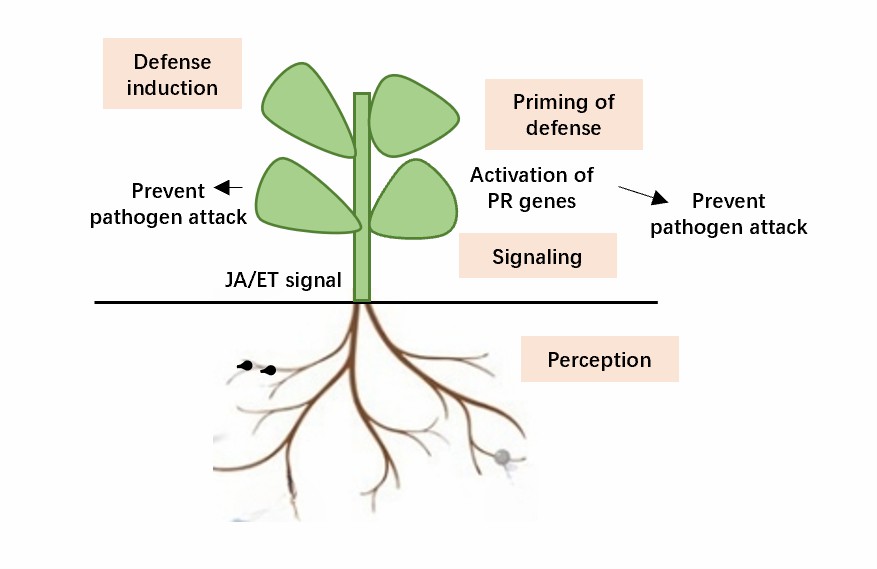Induced systemic resistance (ISR) in plants is the process by which plants autonomously stimulate the immune system in the organism to produce disease resistance when exposed to certain external stimuli. Both externally produced biotic and abiotic factors can play a role in this process. Biotic factors refer to the microbial category, including bacteria, fungi, pathogens, and other related microorganisms around the roots; abiotic factors refer to the external environmental category, including temperature, osmotic pressure, humidity, etc.
Lifeasible develops an advanced platform that provides services to customers worldwide covering analysis of induced systemic resistance in plants. We customize featured services according to customer needs with decades of experience. In addition, we deliver satisfactory and reliable results and reports on time to our customers worldwide.
 Fig.1 Induced systemic resistance (ISR) in plants.
Fig.1 Induced systemic resistance (ISR) in plants.
Lifeasible offers professional services covering analysis of induced systemic resistance to meet your research needs. With years of experience in plants, our advanced platforms can help our clients solve various difficulties and conduct research. If you are interested in our services or have any questions, please feel free to contact us or make an online inquiry.
Lifeasible has established a one-stop service platform for plants. In addition to obtaining customized solutions for plant genetic engineering, customers can also conduct follow-up analysis and research on plants through our analysis platform. The analytical services we provide include but are not limited to the following:
Get Latest Lifeasible News and Updates Directly to Your Inbox
Adaptive Evolutionary Mechanism of Plants
February 28, 2025
Unraveling Cotton Development: Insights from Multi-Omics Studies
February 27, 2025